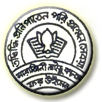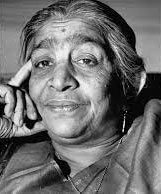
Dr. Sampa Dutta Sarkar
DESIGNATION
Associate Professor
Department of Botany
Biography
Dr. Sampa Dutta Sarkar is attached with the Department of Botany, Sarojini Naidu College for Women since August, 2000. She completed her graduation from Bethune College and M. Sc from University of Calcutta. She was awarded Ph.D degree from North Bengal University.
Research
Research areas of Dr. Sampa Dutta Sarkar are as follows:
- Research Interest : Plant Biochemistry and Molecular Biology
- Semester I -Microbiology, Biochemistry
- Semester III – Economic Botany
- Semester IV- Plant Physiology
- Ssemester V- Industrial and Environmental Microbiology,
- Semester VI- Plant Physiology Plant Biotechnology and Plant tissue Culture, Analytical techniques in Plant Science
- Chakraborty, U., Datta, S. and Chakraborty, B. N. (2001). High Temperature induced changes in phenol metabolism in tea leaves. Journal of Plant Biology, 28(2): 223-226.
- Chakraborty, U., Datta, S. and Chakraborty, B. N. (2001). Drought induced biochemical changes in young tea leaves. Indian Journal of Plant Physiology, 6: 103-106.
- Chakraborty, B. N., Datta, S. and Chakraborty, U. (2002) Biochemical responses of tea plants induced by foliar infection with Exobasidiumvexans. Indian Phytopathology,55(1): 8-13.
- Chakraborty, U., Datta, S. and Chakraborty, B. N. (2002). Response of tea plants to water stress. Biologia Plantarum,45(4): 557-562.
- Chakraborty, U., Datta, S., Das, G. and Chakraborty, B. N. (2002). Factors affecting development of brown blight disease of tea and its management Journal of Hill Research 15(2): 78-85.
Book Chapters
- Chakraborty, U., Datta, S. and Chakraborty, B. N. (2000). Changes in biochemical constituents of tea leaves induced by temperature stress. In: Advances in Plantation Crops Research (Eds. N. Muraleedharan and R. Raj Kumar), UPASI Tea Research Institute, p. 246-250
- Chakraborty, U., Datta, S., Das, J., Bandyopadhyay, N. and Chakraborty, B. N. (2000). Changes in phenyalanine ammonialyase activity in tea leaves in response to biotic and abiotic stress. In: Integrated Plant Disease Management for Sustainable Agriculture, Golden Jubilee, Indian Phytopathological Society. p. 1129-1130.
- Chakraborty U., Dutta, S. and Chakraborty, B. N. (2002). Biochemical profiles of tea from different geographical regions of India. In: Perspectives of Plant Biodiversity (Ed. A. P. Das), Bishen Singh Mahendra Pal Publishers, Dehra Dun
- Chakraborty, U., Dutta, S., Maitra, K, Basu, K. K., Saha, G., Tongden, C. and Chakraborty, B. N. (2005). Alteration in metabolic processes of tea following abiotic stresses. In: Stress Biology (Eds. U. Chakraborty and B. N. Chakraborty) Narosa Publishing House, New Delhi. p.37-43
- Chakraborty, B. N., Rana, S., Das, S., Das, G., Som, R., Datta, S. and Chakraborty, U. (2005). Defense strategies of tea towards foliar fungal pathogens. In: Stress Biology (Eds. U. Chakraborty and B. N. Chakraborty) Narosa Publishing House, New Delhi. p.208-215.
- Academic Sub Committee, Internal Seminar Committee, Grievance Redressal Cell
 Pay Your Fees
Pay Your Fees 

